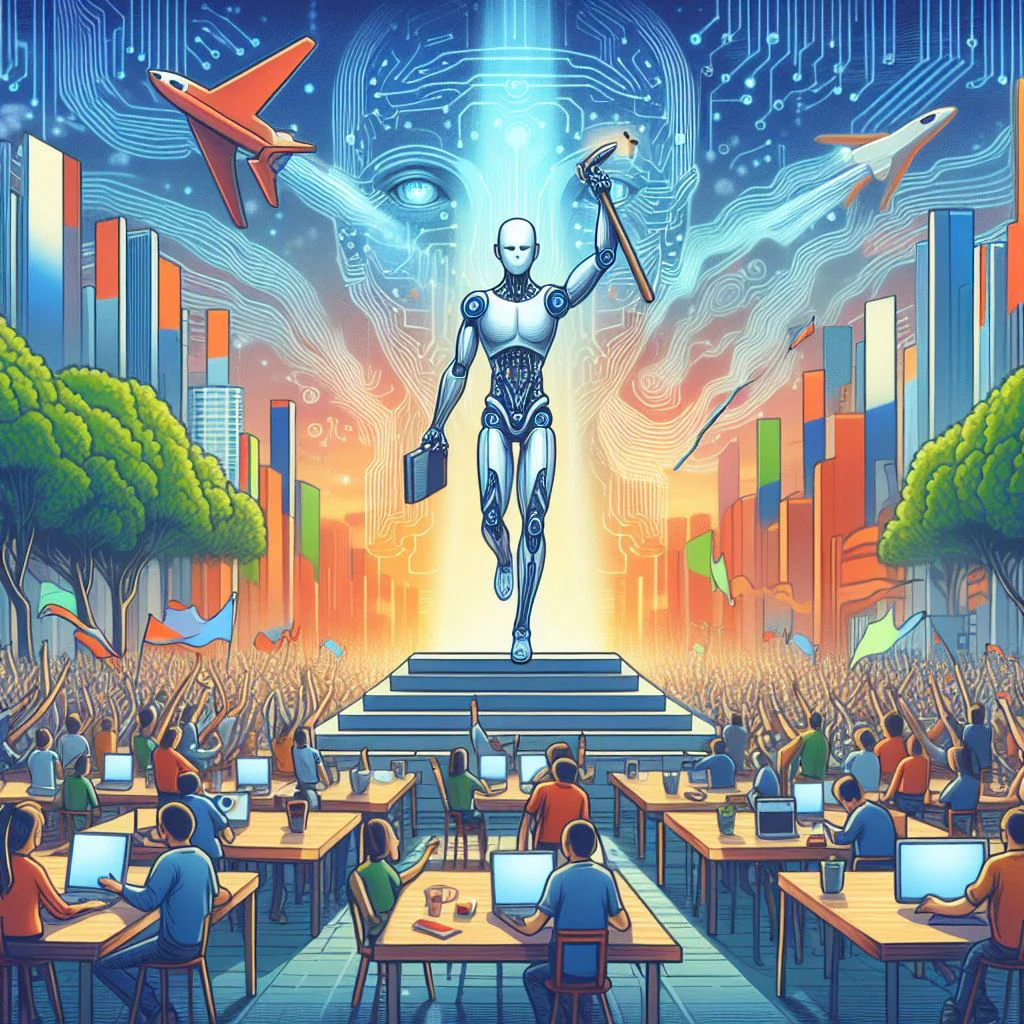In a groundbreaking development, OpenAI’s latest release of customizable GPT-4 models has introduced a new level of personalization in digital assistance. This evolution in AI technology signifies a shift towards more specialized and user-defined applications, marking a significant milestone in the industry.
Custom GPTs Revolutionize User Experience
The release of customizable versions of the GPT-4 model has ushered in an unprecedented era of user-focused AI applications. These bespoke GPTs allow users to tailor the AI’s responses and functionality to their needs and preferences, from personal entertainment to professional task automation.
One of the most notable introductions is the ‘Offended Bot,’ a GPT programmed to identify potential offensiveness in statements, indicating the nuanced understanding of AI in social contexts. Meanwhile, ‘Master Sorry’ stands out as a digital wordsmith, crafting apologies for various scenarios, from personal lapses to professional missteps. This ability to generate specific content based on user input highlights the advanced capabilities of the new GPTs to engage with complex human emotions and social norms.
For businesses, the ‘Expert AI Consultant’ bot offers strategies to embed AI into various operations, showcasing how these technologies can be leveraged for efficiency and innovation. With suggestions for integrating AI into sectors as unexpected as animal care, the model demonstrates the vast potential for AI to transform and streamline industry practices.
AI’s Role in Global Analysis and Esoteric Knowledge
Another remarkable innovation is the ‘Geopolitics GPT,’ which comprehensively analyses international relations and political scenarios. It presents balanced views on sensitive topics, reflecting programmed impartiality to inform users without bias. This specialization in current affairs showcases the model’s capacity for delivering insightful and objective commentary on global events.
On the more whimsical side, ‘Professor Thoth’ taps into the rising interest in mystical and esoteric knowledge. It offers users guidance on meditative practices and spiritual inquiries, exemplifying the AI’s reach into niche interest areas. This illustrates the flexibility of the GPT-4 model to adapt to varied user demands, including entertainment and personal growth.
‘WeatherGPT’ adds a novel twist to daily forecasts, incorporating AI-generated illustrations and creative narratives into the weather-reporting genre. This function goes beyond the basics, infusing routine information with creativity and a personal touch, redefining user engagement with practical applications.
The Future Landscape of AI Customization
As AI technology advances, its applications’ boundaries are being pushed further by imaginative and inventive use cases. The diversity of these GPT-4 customizations highlights the model’s vast potential and the creativity of its users. While concerns about using powerful AI tools persist, these developments point to a positive and constructive future where AI assists and enhances human capabilities.
The deployment of customizable AI models like those released by OpenAI demonstrates a promising direction for technology’s role in everyday life. With the capability to create virtual assistants across a spectrum of personalities and skill sets, the technology sets a new benchmark for digital interactivity and personalization.
The advent of customizable GPTs heralds a new chapter in the digital revolution, where AI becomes a tool and a collaborative partner capable of growth and adaptation. As we witness the expanding horizons of these technologies, the next generation of AI promises to be as limitless as the creativity of those who program it. The story of AI is still being written, and each advancement presents a new opportunity to redefine the future of digital interaction.





